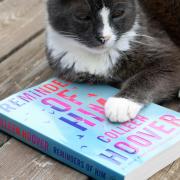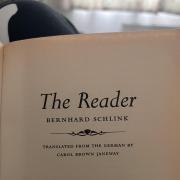
Platonic Love at Valentines
On the 14th of February 2024, millions of people across the globe came together to celebrate love, and whilst romantic love is arguably the most recognised and appreciated form, others can be more rewarding and impactful.
The Ancient Greeks are said to have had eight different words for ‘love’, each with their own meaning and explanation:
Eros – sexual.
Desirable, erotic love is uncontrollable but creates satisfaction for a short period of time. This form of love is often associated with disloyalty towards one’s partner and can therefore destroy relationships built on trust.
Philia – affectionate.
Platonic love can sometimes create jealousy between romantically involved partners, as it is the most misunderstood and manipulated form of love. However, philia is practised between friends who aren’t attracted to each other sexually or romantically, but still feel and show affection to one another on a basic level.
Ludus – playful.
Uncommitted, with ‘no strings attached’ is Ludus, the playful, carefree form of love. Although it may be interpreted as innocent, harmless flirting, this type of love can be the most hurtful, when it becomes apparent that you were just a friend with benefits, rather than being in a more meaningful, compassionate relationship. People who practice Ludus view love as a game, often forgetting the power it possesses.
Agape – unconditional.
The love Jesus said he had for humanity, Agape, is possibly the most respected form of love, due to its difficulty to apply to everyday life. Agape is purely selfless, and therefore self-sacrificial. The most famous example being the religious belief that Jesus died on the cross for the sins of mankind. In this sense, Agape can become self-destructive if one neglects your own needs for the sake of others.
Storge – familial.
The love between family members is often comprised of layers of complexity. Whilst many familial relationships are understanding and compassionate, they can often be the unhealthiest and driven by guilt ridden duty. This is usually caused by a conflict of opinion or generational differences, which are enhanced by lack of communication and empathy.
Mania – obsessive.
Whether felt by a stalker towards their prey or the victim of unrequited love, Mania is by far the most destructive form, as it endangers both people involved. First, the one someone is manically in love with: when someone becomes obsessed with you, it is important to distance yourself from them as soon as you can, before you fall victim to the sinister nature of their desperation. And second, the one obsessed: Mania is the reason people call love a drug, because once intoxicated, one is no longer able to focus on anything but their obsession who, in most cases, feel nothing but pity or even revulsion in return.
Pragma – dutiful.
A pragmatic lover choses to focus on the rationality and practicality of a relationship, over their true feelings towards that person. This form of love is associated with longevity and maturity, as it often grows as more time is spent with a partner. Because of this, it is sometimes referred to as ‘enduring love’. However, by choosing to love this way, one may fall short of other aspects of a relationship, like romance and passion.
Philautia – self love.
Lastly, the love of oneself, also the most difficult form of love to balance. High self-esteem, self-motivation, good body image and speaking kindly to yourself are all healthy forms of this love. However, if one regards themselves too highly compared to others, philautia can quickly morph into vanity and narcissism, when putting others down feels beneficial and sometimes even enjoyable.
The Ancient Greeks weren’t wrong – love comes in many forms and can be shown, practised and appreciated in so many ways. So, if you felt alone this Valentine’s because you didn’t share a candlelit dinner with anyone, or you didn’t attend a Galentine’s party, just know that love can be found in places that are less obvious than you would expect.
Platonic love, or Philia is summed up by Georgina Vincent Bell, a close friend who explains, ‘Friendship is a synonym for love’



























